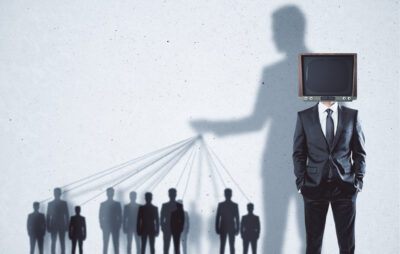Monetary Manipulation and the Loss of Trust in Free Enterprise
The On-Line Library of Law and Liberty just published my review of Stephen King’s “When the Money Runs Out.”
Monetary manipulation has destroyed the level of trust in free-markets in many countries, I am more familiar with the Argentine case, which King analyzes in his book. He also touches on Japan. Their civil society still has a considerable degree of trust but give easy money a long life and there are few things that it can’t destroy. In my review I write:
“The breakdown of some basic consensus about fair play and equality before the law is a major theme of the book. King writes compellingly on the loss of trust: “With heightened levels of trust, there is less need for bureaucracy: rules, regulations and legal enforcement can be reduced without wider costs.” On the contrary, “without trust, economic growth will be in short supply. And with neither trust not growth, society is in danger of disintegrating.”
Who is to blame for this loss of trust? “Banks—deservedly in some cases—are no longer trusted. People within the financial system no longer trust each other.” The author speaks as a privileged witness to the events he writes about. He mentions his own employer, HSBC, as “involved in a particular distasteful money-laundering scandal concerning Mexican drug money, ending up with a deservedly heavy fine of $1.9 billion from the U.S. authorities.” Barclays and Northern Rock (which got billions in bailout money, denting the image of the former co-chairman, a famous advocate of laissez-faire economics) are also mentioned, as is Goldman Sachs, which he says helped Greece deceive its creditors.”
HSBC had even special made lockers to receive the buckets of dirty money . . .
I continue “The concern that King shows about this issue is notable if you consider the banking circles he moves in. His critique pales, of course, compared to the outrage that exists beyond those circles. Citizens are up in arms that executives or employees of these banks continue at the helm. While small drug offenders end up in jail, the powerful banking accomplices are only required to pay large fines—and these tend to be passed to shareholders who are content with the “big picture.” The fact that banks have become not only “too big to fail” but also “too big to jail” also contributes to the loss of trust. For most, the banking elite belong in the shady and questionable “wise guys” category.
The weakening of trust, according to King, is also caused by a certain type of income inequality—and this can lead to intergenerational or even class warfare. He concludes that:
what matters is not so much whether a society is unequal but, rather, why it is unequal. Did the wealthy enrich themselves unfairly? Were the poor exploited? Or, instead, did inequality arise through voluntary exchange, in which case there might be little need to worry.
I agree completely with the first part of the statement. Corruption, cronyism, and cumbersome regulations choke the growth of the small companies and businesses where the poor enter the market. This creates an inequality which should be of great concern. Its negative effects conspire against long-term affluence. Corruption and cronyism contribute to what I call an “unequal distribution of economic freedom.” As to whether “there might be little need to worry” if the inequality is the result of purely voluntary forces, I would say this: Given that inequality is basically the result of the ability to earn an income, and that this ability is determined mostly by education, there might be some need to worry.” I write about the unequal distribution of economic freedom in this Forbes piece.
For more on my review of Stephen King’s book read here . . .







